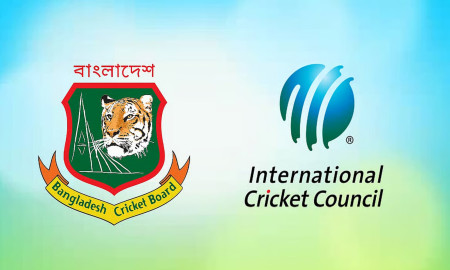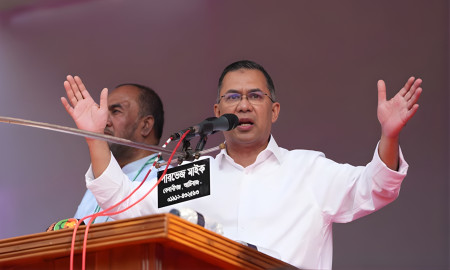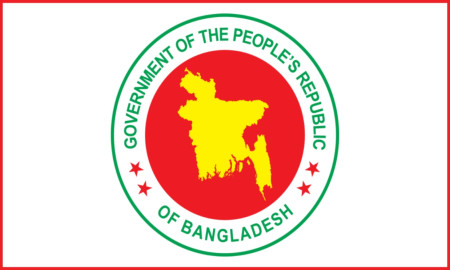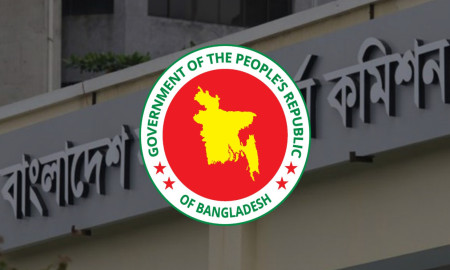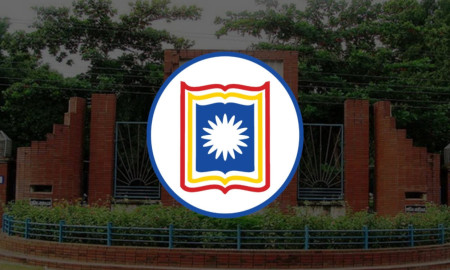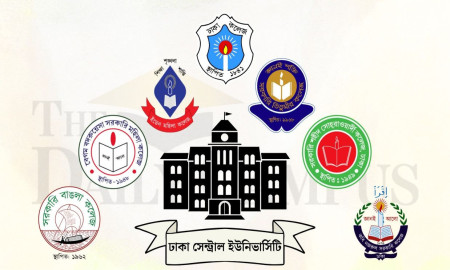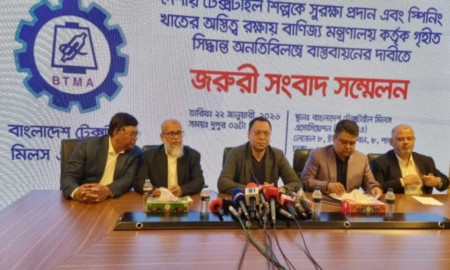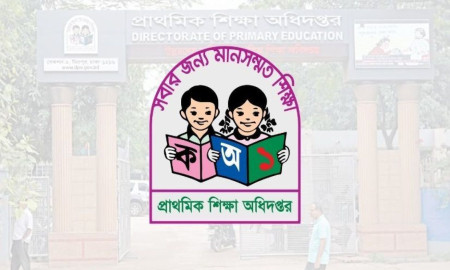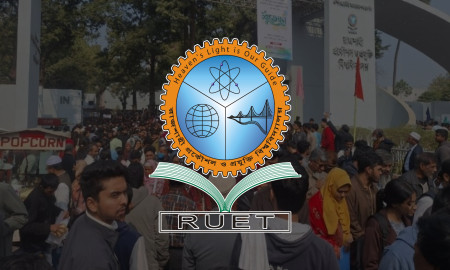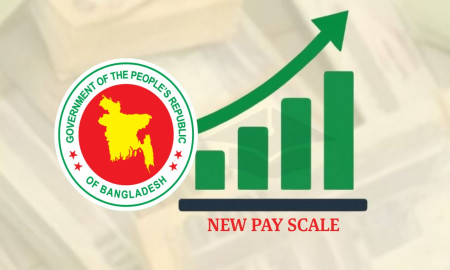From Chandpur Village to Queensland: Md. Rabiul Alam's Inspiring Leap to Global Academia
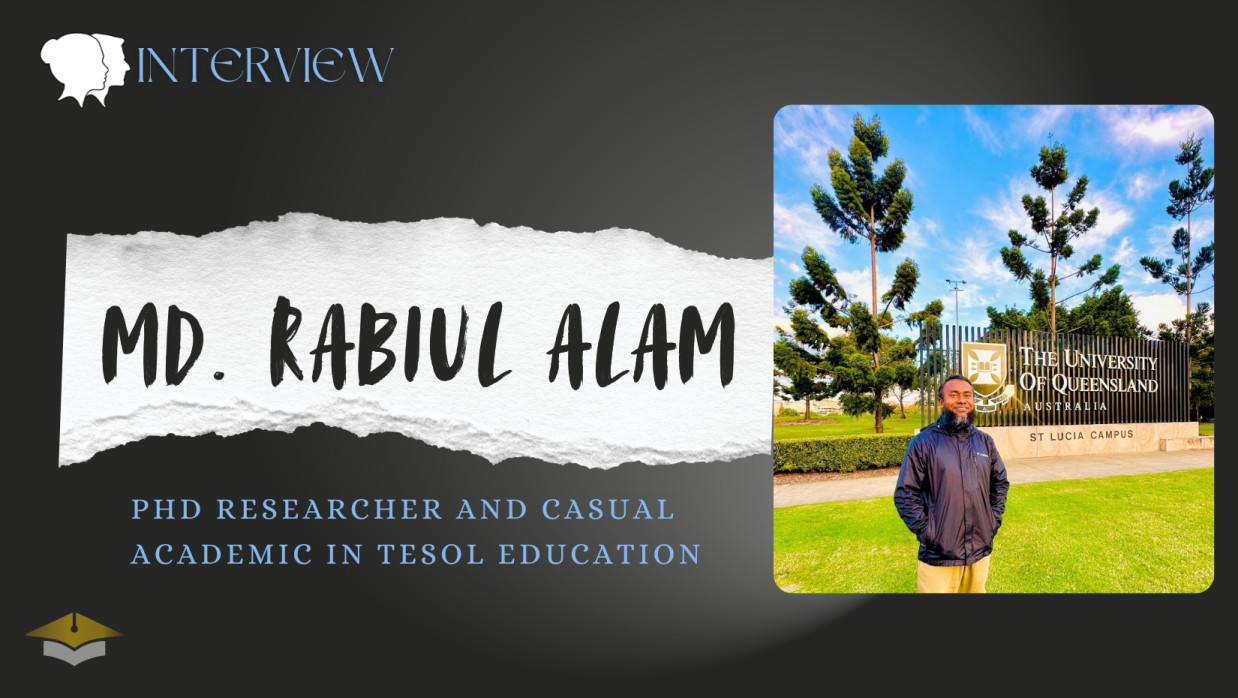
Md. Rabiul Alam is a PhD Researcher and Casual Academic in TESOL Education at the University of Queensland, Australia. In this interview, he shares his remarkable journey—from growing up in a small Bangladeshi village to receiving international scholarships, awards, and recognition on the global stage. Interview taken by Abdur Razzak Khan.
Q: Could you tell us about your childhood and early education?
A: I was born in a small village called Daiara in Shahrasti Upazila of Chandpur District, Bangladesh. Growing up in a rural community with limited access to resources, I witnessed firsthand how difficult it was for many children to pursue quality education. These early experiences gave me a strong determination to value learning.
I completed my primary and secondary education in local schools and madrasas. From a very young age, I developed a deep fascination with languages and education—interests that would later define my academic journey. For higher studies, I enrolled at the Asian University of Bangladesh (AUB), where I ranked first in both my Bachelor’s and Master’s degrees in English. These achievements gave me confidence and inspired me to dedicate my life to academia. Soon after graduation, I joined AUB’s English Department as a Lecturer, marking the beginning of my academic career.
Q: What is your current position?
A: I am a fully funded PhD Researcher in TESOL Education at the University of Queensland (UQ), supported by an Australian Government Research Training Program scholarship. Alongside my doctoral research, I work as a Casual Academic, tutoring Master’s students in three courses: TESOL Curriculum and Pedagogy, Critical Perspectives on TESOL, and Language in Education Planning.
I also serve as the HDR Representative for the School of Education in 2025 and am leading the organisation of the UQ School of Education Postgraduate Research Conference 2025. These roles allow me to represent research students, strengthen academic networks, and contribute to UQ’s scholarly community.
Q: You were teaching in Bangladesh. What motivated you to pursue higher studies abroad?
A: While teaching at Asian University of Bangladesh (AUB), I realised that to contribute meaningfully at an international level, I needed exposure to global research and diverse academic cultures. Advanced research opportunities, intercultural learning environments, and broader perspectives were essential. This realisation motivated me to look beyond Bangladesh for higher studies, and I eventually chose the University of Malaya (UM) in Malaysia as my first destination for a Master of Education in TESOL.
Q: Why did you choose Malaysia as your first step toward that dream?
A: Malaysia appealed to me because of its cultural proximity, affordability, and strong academic reputation. The University of Malaya, in particular, stood out for its QS global ranking and its well-established TESOL program. Securing admission there became the true turning point of my international academic journey.
Q: How was your experience at the University of Malaya?
A: Studying at UM was truly transformative. The multicultural environment broadened my worldview, while access to advanced libraries, modern research facilities, and opportunities for international collaboration sharpened my academic skills. To be honest, my true research journey began at UM when I started working as a Graduate Research Assistant (GRA) under Dr. Banna in his projects. That hands-on involvement gave me practical exposure to the entire research process—from planning and data collection to analysis and academic writing. These experiences not only deepened my understanding of research but also prepared me for the rigorous demands of doctoral studies later on.
Q: What challenges did you face during your studies and research in Malaysia?
A: Initially, I struggled with cultural and academic adjustments—different teaching methods, research expectations, and adapting to a highly competitive environment. But I treated these as opportunities for growth. Over time, they helped me build resilience, adaptability, and critical thinking, which continue to guide me today.
Q: How did you later secure scholarships for your PhD studies?
A: After completing my Master’s with distinction at UM, I returned to Bangladesh and began preparing scholarship applications in 2022. I identified potential supervisors whose research interests matched mine and reached out with tailored emails, attaching my CV and research proposal.
Several supervisors invited me for Zoom interviews, where I discussed my research experiences and publications. One often-overlooked factor is the importance of referees. A strong referee can make or break an application. I was fortunate to have exceptional referees, especially Dr. Banna (Manchester Metropolitan University, UK) and Dr. Huzaina (Universiti Malaya). Their thoughtful recommendations validated my potential and significantly strengthened my applications.
Eventually, I received nominations from universities in the United States, New Zealand, and Australia, and ultimately accepted the offer from the University of Queensland, where I am now pursuing my PhD.
Q: What tips would you give Bangladeshi students aspiring to win international scholarships?
A: Based on my experience, four things are crucial:
1. Find the right supervisor whose research focus matches yours.
2. Write a clear, professional first email introducing your background, research interests, and motivation.
3. Prepare a strong CV and research proposal that reflect your academic readiness.
4. Secure supportive referees who know you well and can endorse your abilities.
If a supervisor is interested, they will usually arrange a Zoom interview to test your knowledge and motivation. Leadership and extracurricular activities also matter. For example, during my Master’s in Malaysia, I was elected Class Representative and actively involved in extracurricular initiatives. These experiences highlighted my leadership and organisational skills, which helped my scholarship applications.
Finally, persistence is key. You may not succeed the first time, but consistent effort and preparation eventually lead to success.
Q: What inspired you to pursue a PhD in TESOL Education at UQ?
A: TESOL has always been at the centre of my academic passion. UQ is globally recognised for TESOL research and offers outstanding supervisors whose expertise aligns with mine. Receiving a full scholarship from such a prestigious institution made the decision clear.
Q: How do you enjoy teaching?
A: Teaching is more than a profession for me—it is a passion. I enjoy engaging with students, listening to their perspectives, and encouraging them to think critically. Working with international students exposes me to diverse viewpoints, which enrich both my teaching and research.
Q: What new experiences are you gaining as a Casual Academic in Australia?
A: Teaching Master’s students at UQ has been deeply rewarding. Their diversity of thought, questioning style, and engagement in research-oriented discussions constantly challenge me to think in new ways. I also find that teaching and research complement each other: the classroom sparks questions for my research, while my research deepens my teaching.
Q: Could you share about your research and publications?
A: To date, I have 26 publications, including 16 journal articles and book chapters indexed in Scopus and Web of Science. My work has received nearly 900 citations on Google Scholar. I have also presented at major international conferences and contributed chapters to edited volumes, which has helped me gain visibility in global academia.
Q: What awards and recognations have you received so far?
A: I was honoured with the AILA Solidarity Award 2024 in Malaysia and received the Best Paper Award at an international conference in Indonesia. I also serve as a reviewer for several international journals and conferences, which allows me to contribute to the global research community.
Q: How do you compare the education systems of Bangladesh, Malaysia, and Australia?
A: In Bangladesh, education is still largely teacher-centred, with limited student participation and insufficient research culture. This remains a challenge for producing world-class scholarship.
Malaysia, particularly at UM, provides research-oriented education, strong supervision, and international exposure. While not as research-intensive as Australia, UM consistently strives to prepare students well to compete on the global stage.
Australia, by contrast, is fully student-centred. Critical thinking, independent research, and classroom dialogue are prioritised. Students are encouraged not just to absorb knowledge but to generate new knowledge—this, I believe, is the greatest strength of the Australian system.
Q: How can Bangladesh’s education system be improved?
A: Bangladesh needs to integrate research-based learning and encourage critical thinking and problem-solving. Strengthening teacher–student relationships, expanding international collaborations, and adopting evidence-based policymaking are also essential steps.
Q: What advice would you give Bangladeshi students aspiring to pursue Master’s or PhD studies in Australia?
A: Have a clear research goal, identify the right supervisor, and prepare a professional application. Craft a strong CV and research proposal, and be patient. The scholarship process can be long and competitive, but perseverance pays off.
Q: How much does it cost for students to live in Australia?
A: Australia is relatively expensive. In Brisbane, the average monthly cost for a student—including accommodation, food, transport, and study materials—ranges between AUD 1,500 and 2,000. With careful budgeting and a scholarship, however, it is manageable.
Q: What career opportunities are available for Bangladeshi students in Australia after graduation?
A: Opportunities are strong, especially in education, research, health, technology, and engineering. Success depends on building networks, publishing research, and developing specialised skills.
Q: What is the process for obtaining citizenship in Australia?
A: After completing studies, graduates can apply for a post-study work visa. With stable employment, they may apply for permanent residency (PR). After holding PR for a few years, they become eligible to apply for citizenship. The process is lengthy but achievable with careful planning.
Q: What were the biggest challenges when you first arrived in Australia?
A: The Australian accent and the climate were the biggest initial challenges. At first, I struggled to understand local pronunciation and adjust to the weather, which is quite different from Bangladesh. Over time, I adapted, and now they no longer feel like obstacles.
Q: What is the scholarship process like in Australia?
A: The process begins by checking eligibility on the university website, then contacting a potential supervisor. If the supervisor is interested, they usually arrange an interview. Finally, the scholarship committee reviews the application. The entire process can take several months to a year.
Q: What are your future research and career plans?
A: My research focuses on Language Management and Language Sustainability. Looking ahead, I want to contribute to policymaking in TESOL education and language sustainability, both in Bangladesh and internationally. My vision is to bridge academic research with real-world educational policy and practice, ensuring long-term impact.
Final Words: My journey from a rural village in Chandpur to global academia proves that with passion, perseverance, and preparation, dreams are achievable. I hope my story inspires Bangladeshi students to aim high and believe that the world of knowledge is within their reach.


